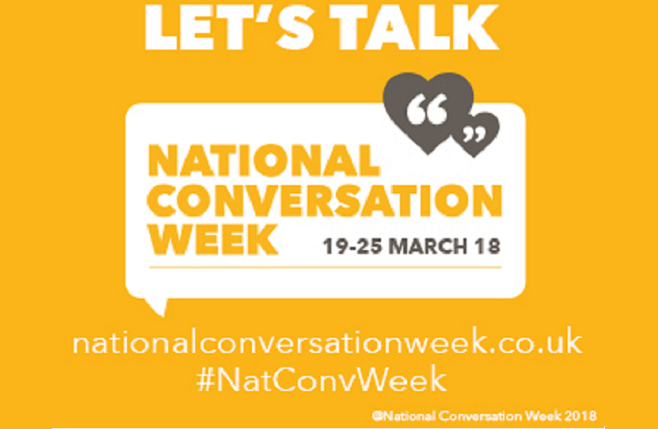National Conversation Week: Talking About Later Life

Approaching retirement
I often recall how, when my dad was approaching retirement, he talked to me about my mum: ‘I can’t be under her feet all day, she’s used to managing her own time’. They spent time talking about their expectations and hopes for retirement, and my mum often cites this as a significant point for them, and for couples who they knew. Those who made plans and really thought about what the change would mean for them found the transition much easier.
Counselling for couples facing retirement
It’s not always easy to approach these discussions about preparing for retirement, and Tavistock Relationships have been looking at a new approach to help. They provide four sessions with a therapist for a couple to think and talk together about the future, and to understand what resources they already have to draw on as they approach the transition to retirement. Tavistock Relationships have been training other therapists in this approach as well.
This is part of the Transitions in Later Life Programme, funded by the Calouste Gulbenkian Foundation (UK Branch). It is supporting organisations such as Tavistock to deliver short group-based interventions that focus on building the emotional wellbeing and resilience of people in mid-life, so they can more easily manage the changes getting older can bring.
Resolving difficulties
Jack* and his partner took part in Tavistock’s counselling as they already recognised there were issues they needed to look at, such as where they wanted to live when they retired. Their sessions moved quickly away from practical matters to more difficult territory around the emotional impact of such a major life change. Jack and his partner had already to talk about certain issues related to retirement before the counselling. But the pressure of their working lives meant it was hard to find time, and these charged conversations were prone to becoming a source of disagreement.
Each week the sessions gave them a chance to step out of normal life and have the space to discuss how they felt. Jack said the sessions challenged him to not just focus on the practicalities of retiring but to consider the emotional side of the transition to a new life. With the support of their therapist, they could talk about more difficult issues and find common solutions. Jack always felt more positive by the end of the hour.
Jack ended the four sessions feeling differently about the future. His attention shifted more towards his partner and their relationship. Now, whilst they acknowledge to each other that they will need space as well as time together, they approach decisions as a unit.
The couple are now able to talk about how they will deal with the future in a different way, using their experience of counselling to create a new space for discussion about the future, sometimes imagining that their therapist is still in the room. Jack says he’s changed his views on retirement, now seeing it less about loss and more about do something different and exciting.
*Name has been changed to respect privacy
We are publishing this blog as part of National Conversation Week
Jack’s course was part of the Transitions in Later Life Programme, funded by the Calouste Gulbenkian Foundation (UK Branch) with our partner the Centre for Ageing Better. Organisations such as Tavistock Relationships help couples to think and talk together about the future, and to understand the resources they already have to draw on as they approach the transition to retirement.
You can hear from more participants in Transitions in Later Life here.
